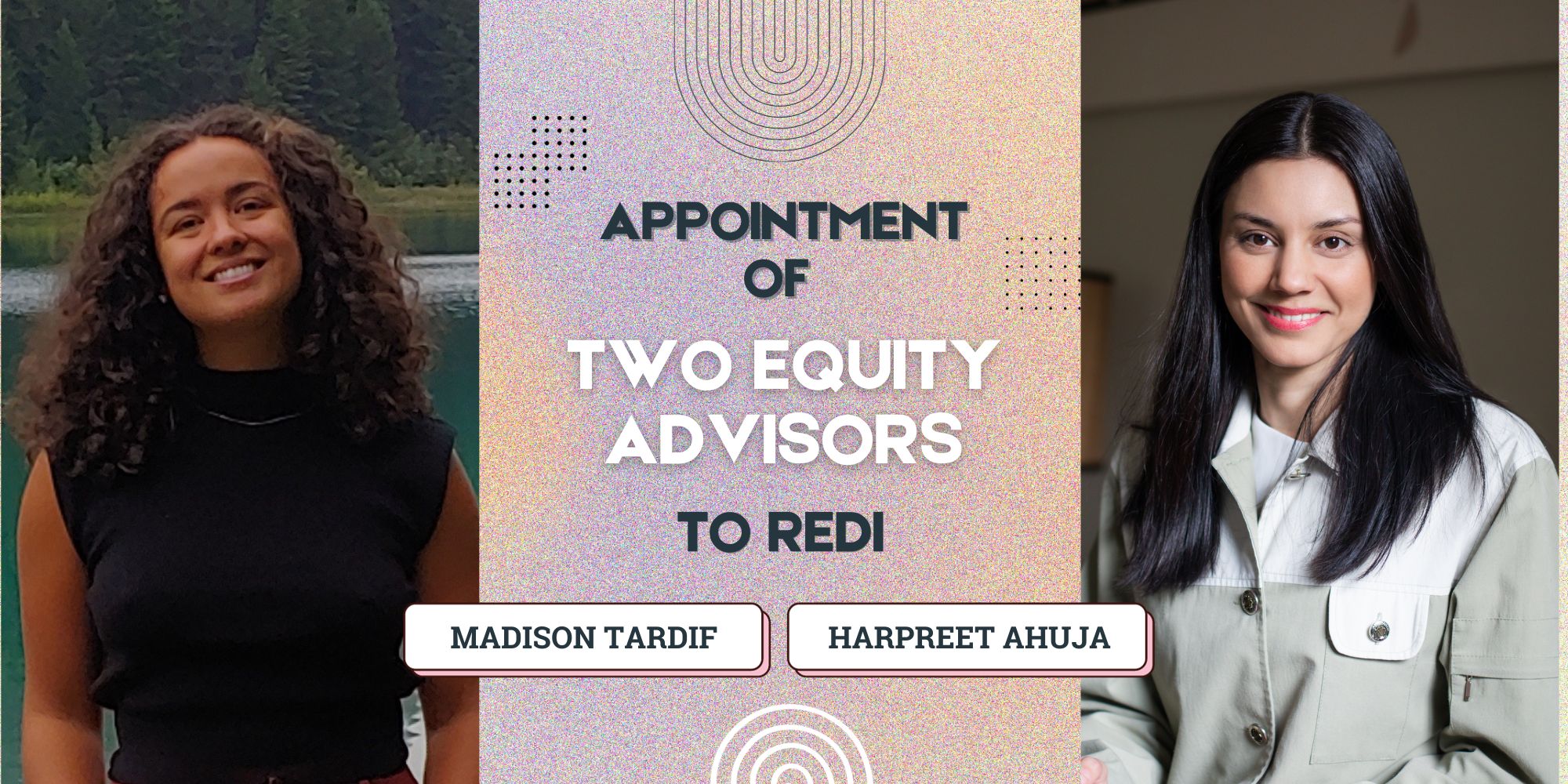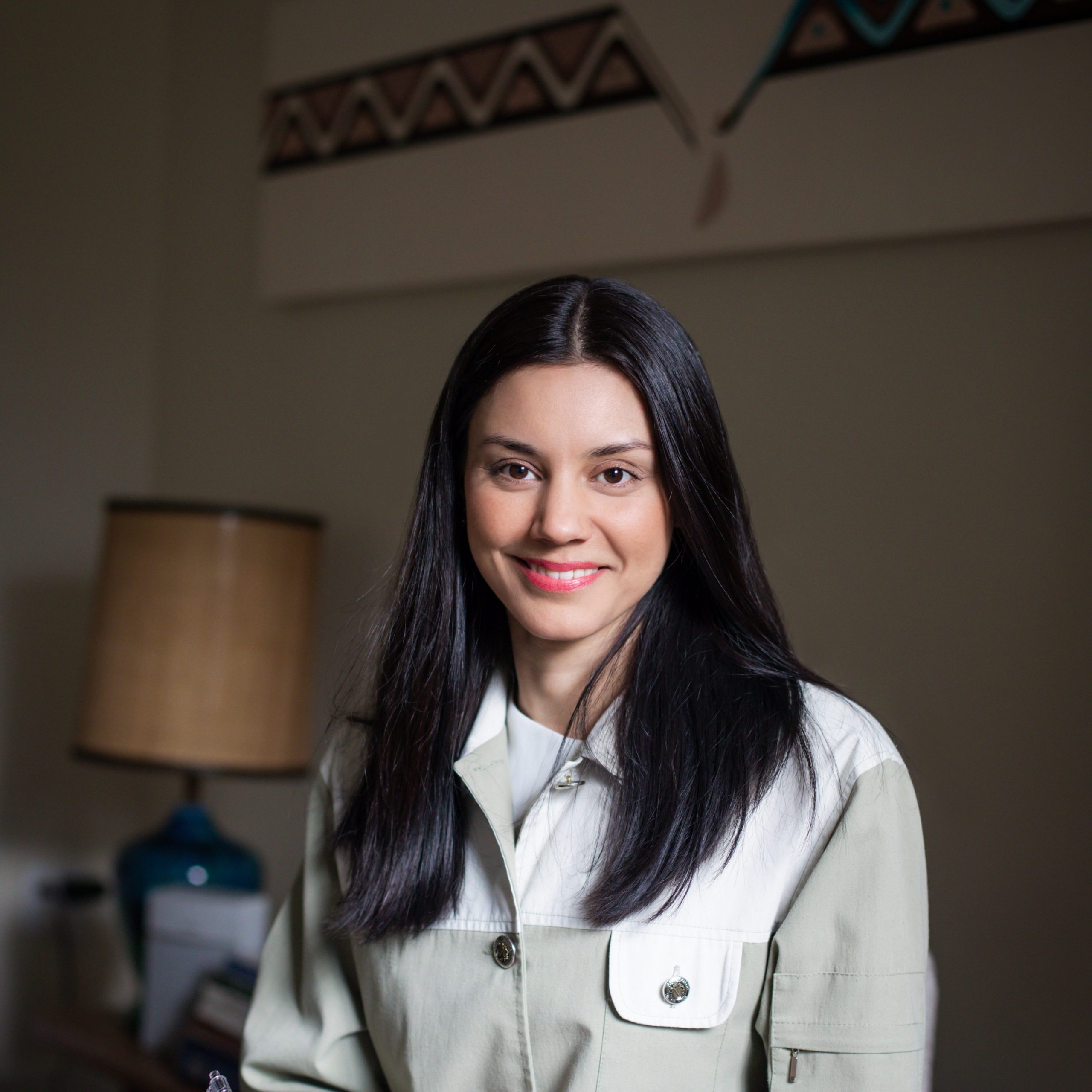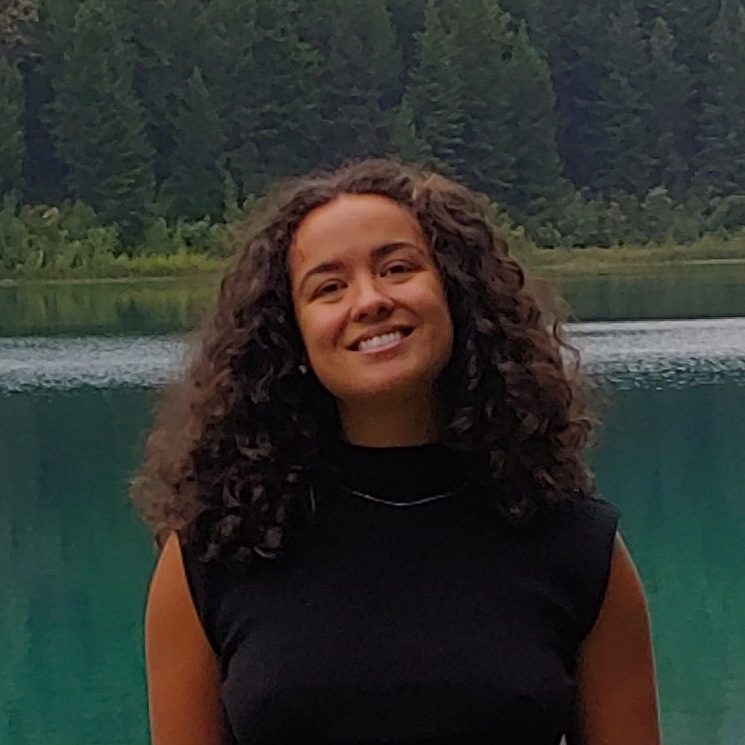Events
Unconscious Biases

Unconscious (implicit) biases are pre-judgments or mental shortcuts we make about others. We all harbor beliefs about members of various social and identity groups. As educators and health professionals, our mental shortcuts can lead to harmful assumptions about individuals from historically, systematically, and persistently excluded groups. If left unchecked, these shortcuts can negatively impact student and patient care. Therefore, it is crucial to reflect on biases about different groups and implement practices that mitigate the effects of biases, preventing behaviors that may harm students and patients. Learn more about mitigating biases in the REDI Best Practices Tip Sheet: Mitigating Cognitive Biases in Hiring.
Welcome Harpreet Ahuja and Madison Tardif

It is with great pleasure that we welcome our new equity advisors, Harpreet Ahuja and Madison Tardif, to the REDI team. They will play a pivotal role in working collaboratively with our partners to develop and deliver EDI educational programming and consultation services to foster the integration of anti-oppressive, anti-racist, and decolonial approaches within the academic and administrative units across the Faculty.
Our new advisors bring a wealth of knowledge and expertise to the team. We are excited about the positive impact they will have on our efforts to transform our culture. We invite you to get to know Harpreet and Madison by reading their bios below.

Harpreet Ahuja, Equity Advisor, REDI
Harpreet Ahuja (She/Her/Hers) is an Equity Advisor at the Office of Respectful Environments, Equity, Diversity, and Inclusion (REDI) within the Faculty of Medicine. In her capacity at REDI, she offers strategic guidance and supports capacity-building for department heads, faculty, staff, and students who are dedicated to implementing decolonization, anti-racism, and inclusive practices.
Harpreet is the daughter of an immigrant father from India and a Labradorian Inuit-Polish mother. She was born and raised in Montreal studying in French, then spent her teenage years in downtown Toronto. Her culturally diverse upbringing ignited her curiosity and fueled her passion for social justice.
Her journey into Equity, Diversity, and Inclusion (EDI) awareness began as a law student when she was nominated by the faculty of law to serve as the Vice President of Equity for the Common Law Student Society. She carried her EDI change management experience into her role as an Investigator in the Critical Injuries and Deaths Division with BC’s Office of the Representative for Children and Youth, where she worked to prevent the deaths of vulnerable children in government care.
Harpreet’s approach to embedding EDI is informed by an international context. She has worked on death penalty cases in Malawi, studied genocide education in Rwanda, and Holocaust education in Poland and Germany. She provided legal assistance to migrants on the U.S.-Mexico border and resettled LGBTQI+ Syrian refugees, working out of a satellite office in Israel. She wrote children’s books for schools in Honduras and taught English to university students in Ecuador. Most recently, in October 2022, she worked as an Electoral Observer for the Office for Democratic Institutions and Human Rights in Bosnia and Herzegovina.
Harpreet is a lawyer by training, holding a law degree from the University of Ottawa (2017) and a Master of Laws degree in International and Comparative Law from the University of California, Los Angeles (UCLA) School of Law (2019). During her time at UCLA, she was honoured with the Dean’s Tuition Fellowship Award, UCLA School of Law’s Public Interest Award, and a post-graduate fellowship at Yale Law School. Her legal career began with Legal Aid Ontario, where she gained experience in refugee law, aboriginal law, and criminal litigation. She was subsequently Called to the Bar in Ontario and British Columbia.
Prior to joining our team, Harpreet served at arms-length for BC Corrections in the Adult Custody Division, where she was appointed by the Assistant Deputy Minister in the Ministry of Public Safety and Solicitor General as an independent decision-maker presiding over disciplinary hearings within the 10 provincial correctional centres in BC.
In her spare time, Harpreet is an avid boxer, training at a local boxing gym, and she is also dedicated to the study of the Spanish language.
Harpreet acknowledges that she is on the stolen lands of the unceded territories of the xʷməθkʷəy̓əm (Musqueam Indian Band), Sḵwx̱wú7mesh (Squamish Nation), and səlilwətaɬ (Tsleil-Waututh Nation). She expresses gratitude to Indigenous Peoples for their enduring connection to their lands and is committed to learning how to work in solidarity as an accomplice in shifting the colonial default.

Madison Tardif, Equity Advisor, REDI
Madison Tardif (She/Her/Hers) is an Equity Advisor at the Office of Respectful Environments, Equity, Diversity, and Inclusion (REDI) within the Faculty of Medicine. In her capacity at REDI, she offers strategic guidance and supports capacity-building for department heads, faculty, staff, and students who are dedicated to implementing decolonization, anti-racism, and inclusive practices.
Madison’s journey into this field was influenced by her own multiracial background, sparking her exploration of identity, power dynamics, privilege, and systems of oppression. While pursuing her graduate degree at the University of Toronto, she delved deeper into the realms of community engagement, systems change, and decolonization. Her research primarily revolved around policy and decision-making within Indigenous self-governments, providing her with profound insights into leadership, community-centered decision-making, and decolonial approaches to governance. This research also played a pivotal role in her work with the Syilx (Okanagan) Nation at Westbank First Nation, where she contributed to the development of policy for the Intergovernmental Affairs and Title and Rights department. This experience underscored the significance of Indigenous sovereignty and the right to self-determination, shaping her passionate commitment to human rights, community-building, justice, conflict engagement, equity, decolonization, indigenization, and anti-racism.
In her previous role at the Equity and Inclusion Office, Madison actively supported the establishment of staff and faculty affinity spaces, the enhancement of hiring standards at the faculty and unit levels, and the creation of educational resources and workshops aimed at empowering historically, persistently, and systemically marginalized (HPSM) groups within UBC. Before joining UBC, Madison served at BC Cancer as the Prostate Cancer Supportive Care Coordinator, where she oversaw prostate cancer patient support for the BC Interior region. Through this experience, she gained firsthand knowledge of how patient-centered and holistic approaches to support can empower HPSM individuals to advocate for themselves and their well-being.
Outside of her professional endeavors, Madison enjoys mountain biking, spending time outdoors with her dog, savoring live music, relishing delicious cuisine, and fostering a sense of community.
Madison is grateful to be a guest on the territories of the xʷməθkʷəy̓əm (Musqueam), Sḵwx̱wú7mesh Úxwumixw (Squamish), səlilwətaɬ (Tsleil-Waututh) and the Syilx (Okanagan) Nation.